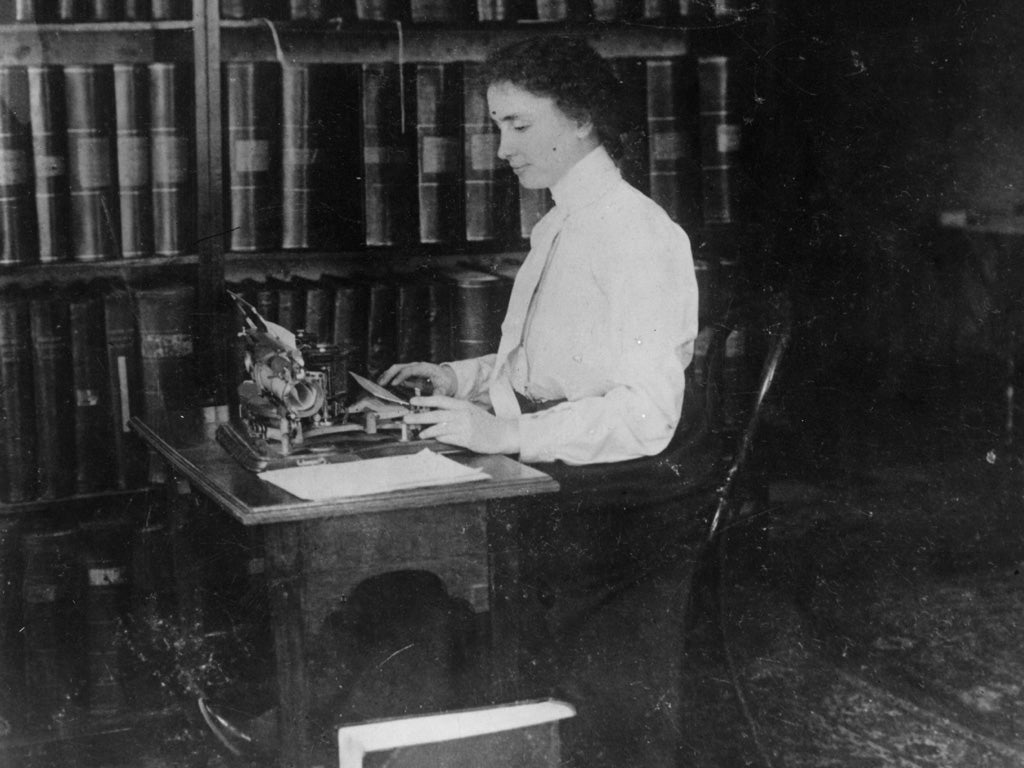The reality is that refusing us PIP would leave deafblind people like me unable to manage
The Government’s welfare reforms are leaving deafblind people in fear that they will struggle to communicate without support

Disabled people are very stressed and anxious at the moment, and with good reason.
There’s been a lot of noise of late coming from the Government about welfare reforms. It’s easy to be fooled into thinking that these reforms will be positive for disabled people.
Yesterday the Government announced the real test of whether their reforms are fair as it announced how disabled people will be assessed for Personal Independence Payment (PIP). It’s important to remember that this is not an out of work benefit, but replaces Disability Living Allowance (DLA) and is supposed to help people with the extra costs they incur because of their disabilities.
The devil will really be in the detail and it’s far too early to tell how well PIP will support disabled people. But what I want is to tell the Government is that disabled people are living in a climate of fear right now. Every time a letter comes through the post about benefits, whenever a Minister talks about cutting benefits in the press – people panic that they are going to lose benefits they need to survive.
I know because I work directly with people who are deafblind, and everyday hear from distressed deafblind people who have been refused benefits they rely on just to get by.
I also know this fear because I am deafblind, and am fully expecting my benefits to be cut because of the introduction of PIP despite being totally blind and profoundly deaf.
Deafblind people like me have both sight and hearing impairments, and many of us need support and equipment to do things that others take for granted everyday. Take going to the doctors for example. If you were deafblind, how would you book the appointment? How would you get there - even if the surgery is around the corner, how would you know if you are going to bump into anything or get hit by a car? How would you tell the person on reception that you have arrived? How would you know when the doctor is ready to see you? How would you explain your health concern, and get treatment or advice from the doctor? Then you have to get back home safely…
Deafblind people can’t communicate or know what is happening around them in the same way a deaf or a blind person might. For example, deaf people may be able to lipread or sign, and blind people can hear speech. I receive communication using deafblind manual (where an interpreter spells words out on my palm) and express myself in speech because I lost my hearing as an adult. Too often, people, even health and social care professionals, assume that because I can speak and make myself understood I face no barriers with communication. How wrong can people be? Without a deafblind manual interpreter, I have no idea what people are saying, that they are saying something or even if they are in the room.
There is some amazing equipment out there that enables deafblind people to access the internet and computers through Braille (talking computers won’t work if you are profoundly deaf as well as blind), and there are support workers (called communicator guides) who are highly trained on how to communicate with deafblind people.
But this doesn’t overcome all the barriers we face and put us on a level playing field. Plus, it is specialist, expensive stuff. Deafblindness is a costly business, and this is why we need PIP to help us cover the cost of being deafblind. In some cases, support worker costs can be covered by social services, but their travel isn’t. Would you pay double every time you travel by train because you need a hearing and sighted guide? Or, for that matter, over £3,000 for a landline telephone that displays what people are saying in Braille? Many deafblind people have to pay these costs and much more. DLA doesn’t fully cover our extra costs but goes a long way towards it.
While many deafblind people will meet the criteria for PIP, we will have to convince the assessors from Atos or Capita and the decision-makers from DWP that we do – and we can only do that if the assessors really know what it means to be deafblind and if the assessment is accessible to us. In last year’s pilot of the PIP assessment, I was told that I couldn’t be assessed because they could not provide a deafblind manual interpreter.
This is typical of the experiences other deafblind people tell me about. There has been nothing said that gives us confidence that the PIP assessments will be different, that we will get information in formats we can access, that our communication needs will be met or that assessors and decision-makers will understand the way deafblindness affects us.
Losing DLA, and being refused PIP, will leave deafblind people unable to manage and push us into even greater isolation and dependence; a prospect that is making us stressed and anxious even now.
To make matters worse, we know that, even if we get lucky once, we’ll have to repeatedly go through the assessment, as awards for PIP will be for a limited amount of time, and so the fear of losing it will never go away.
By Liz Ball, Campaigns Involvement Officer at national deafblind charity Sense
Join our commenting forum
Join thought-provoking conversations, follow other Independent readers and see their replies
Comments
Bookmark popover
Removed from bookmarks